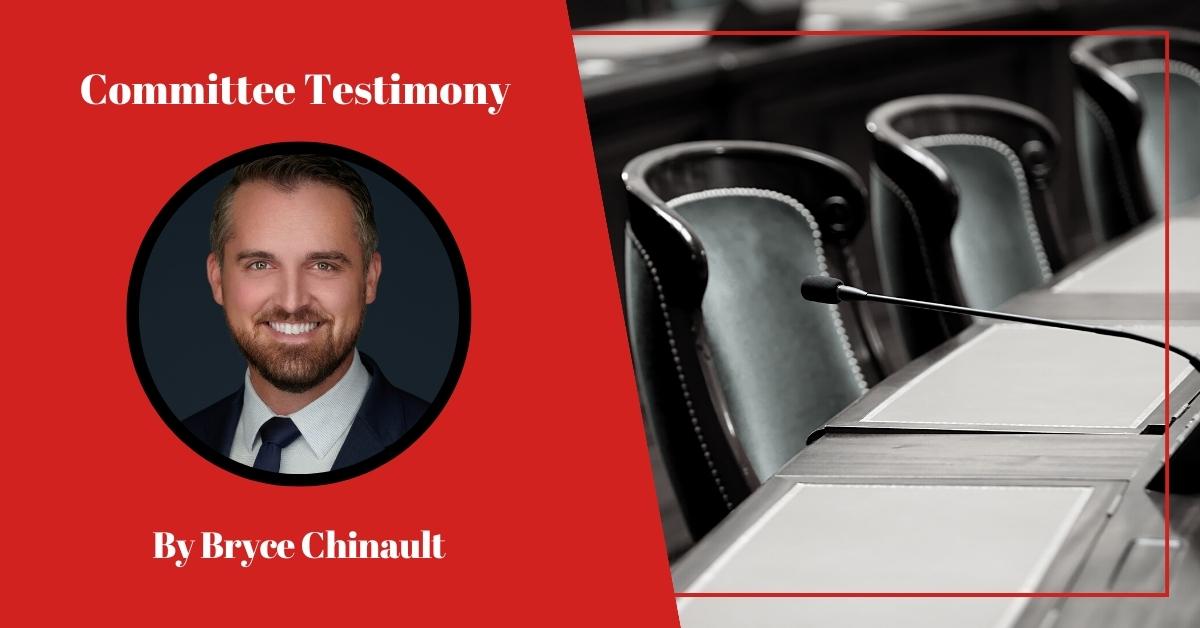Thank you for the opportunity to testify before the Planning and Development Committee in opposition to SB 999: An Act Increasing the Uniform Assessment Rate for Property Tax. My name is Bryce Chinault, and I am the Director of External Affairs for Yankee Institute, a non-profit public policy organization in Hartford dedicated to empowering Connecticut residents to forge a better future for themselves and their families.
Yankee Institute opposes SB 999 because it will increase the tax burdens of Connecticut residents who already suffer under one of the most burdensome state and local tax codes in the country.[1]
SB 999 increases the local property tax assessment rate from 70 percent to 75 percent. With no corresponding decrease in local mill rates, this change would result in a significant increase in housing costs for families across the state.
According to Zillow, the average home in Connecticut costs roughly $360,000.[2] If we use Hartford as an example, the proposed change to the assessment rate under SB 999 would increase the tax burden on the average home by $472 every year.[3]
This may not sound like a lot to policymakers, but it is a significant cost to every family and business in Connecticut. That increase translates into a single mom struggling to pay for groceries, or perhaps missing flights to visit family, or even fewer nights out or disposable income to spur the local economy. This will impact everything we all want and need to do. Even if the cost were relatively easy for families to accommodate this would, again, be adding to the state and local tax burdens that are forcing people out and away from Connecticut.[4]
Rather than seeking to increase property taxes in Connecticut, the General Assembly should be considering placing caps on property tax burdens.[5] Connecticut possesses no meaningful property tax limitation regime, making it an outlier among states, while Massachusetts and New York both impose effective limitations that are considered models for other states.
There are three types of property tax limitations — assessment limits, rate limits, and levy limits — with the latter combining the greatest effectiveness with the fewest unintended consequences. Property tax limitations allow for some rate of growth and usually feature override provisions under which voters can approve growth outside the cap when additional flexibility is needed.
Massachusetts and New York provide a valuable blueprint for state policymakers concerned with reversing the outflow of residents and making Connecticut a more attractive place to live and work; ultimately, SB 999 is not the answer.
Respectfully submitted,
Bryce N.Y. Chinault
Director of External Affairs
Yankee Institute
[email protected]
_______________
[1] Yankee Institute, Connecticut Has One of the Highest Tax Burdens (Again): https://yankeeinstitute.org/2022/05/31/connecticut-has-one-of-the-highest-tax-burdens-again/
[2] CT Insider, High rates, low inventory: A look at CT’s housing market. https://www.ctinsider.com/projects/real-estate/connecticut-housing-values/
[3] Smart Asset, Connecticut Property Tax Calculator. https://smartasset.com/taxes/connecticut-property-tax-calculator#r8ofdnZHZg
[4] Yankee Institute, Left Behind: Connecticut’s Lost Decade. https://yankeeinstitute.org/2022/09/26/left-behind-connecticuts-lost-decade/
[5] Yankee Institute, What Can Connecticut Learn From its Neighbors About Property Tax Limitations? https://yankeeinstitute.org/2020/07/14/what-can-connecticut-learn-from-its-neighbors-about-property-tax-limitations/
Testimony in Opposition to SB 999 Submitted by Bryce Chinault, Director of External AffairsDownload

